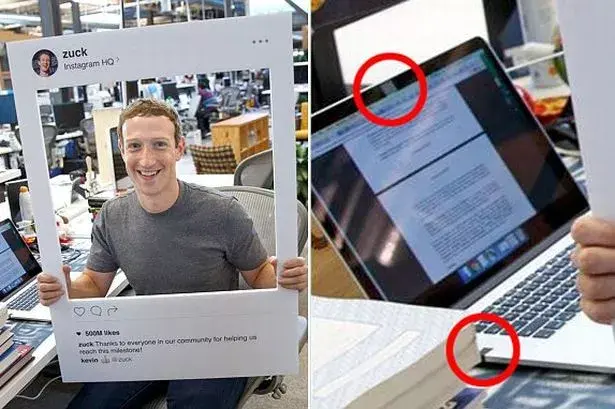In today’s swiftly evolving digital landscape, the timeless saying “prevention is better than cure” has never been more relevant. Safety is a universal concern deeply affecting everyone.
At the core of maintaining operational integrity within organisations lies the security team. These dedicated professionals ensure safety and value the privacy and well-being of each team member. The Security Team at SOFTSWISS commits to dispelling myths about their work and addressing principal security concerns.
In today’s world, where digital dangers are always present, it is crucial to understand the risks. Hackers constantly look for weak spots in computer networks and systems to attack. The IBM Security Data Breach Report 2023 shows that the average cost of a data breach reached a record high of USD 4.45 million in 2023, marking a 2.3% increase from the previous year. The costs have jumped by 15.3% since 2020, when the average was USD 3.86 million. This shows that the financial risks from cyber threats are growing each year.
With over 15 years of operational experience, SOFTSWISS is a beacon of technological expertise and deep industry knowledge, offering an unparalleled environment for ambitious professionals. This setting serves as fertile ground for nurturing talent and innovation.
SOFTSWISS Security Team
The robust Security Team, comprising over 20 experts, is the linchpin in safeguarding the infrastructure and individuals utilising SOFTSWISS products. The team is tasked with defending a diverse suite of products and applications, ensuring compliance across numerous standards and regulatory landscapes in different countries, and fortifying operations against various digital hazards.
Spanning from Southeast Asia to Western Europe, the team’s reach is as broad as it is diverse, reflecting the commitment to inclusivity and a global perspective. SOFTSWISS maintains a culture of openness within the company, promoting a dialogue of transparency and support. While specific details of the work necessitate confidentiality, the security team is consistently available for guidance, advice, and valuable feedback exchange.
Adding a touch of humour to their serious mission, the Harold meme is one of the team’s distinctive symbols, reminding them that facing challenges with a smile is part of their ethos. After all, the hurdles they overcome infuse their work with excitement and a sense of achievement.

SOFTSWISS recognises that security is not merely about defence but about fostering a secure, innovative environment where technology can thrive unimpeded. The dedicated security team does not just shield from threats; they protect the company’s future and ensure the safety of every member within its ranks.
What is Safety?
Let’s talk about safety in a way that is easy to grasp. Imagine building something – a toy, a gadget, anything really – but skipping a few steps to get it done quicker. It might look okay at first glance, but problems soon pop up. Maybe it breaks easily, or worse, it is unsafe to use.
That is a bit like what happens with secure development. It is a big word for a simple idea: ensuring that everything built, especially in the tech world, is safe and secure. Developers might rush and release code that works for now, but it could open the door to hackers or other big headaches later. And nobody wants to deal with that kind of trouble!
At SOFTSWISS, developers have the green light to think big and bold, but with a catch – they have to keep everything tight and secure. It is like having the freedom to paint whatever you want, as long as you do not spill paint all over the floor. They know that fixing a mess, especially one that could have been avoided, is no way to spend a weekend. So, they are all about doing things right the first time, looking for security slips.
Some might think the security team at SOFTSWISS is just there to pinpoint flaws. However, security is not about sticking to old ways but being ready to change and adapt. Sure, they could make everyone work in a fortress-like office with all sorts of tech to keep secrets safe. But they look at what each team needs and find innovative, flexible ways to keep everything secure without complicating life. Sometimes, this means changing how things are done or trying out new tools, which can feel like a hassle. However, the goal is to show how these changes make everyone’s work (and data) safe and sound.
SOFTSWISS has a trio of teams tackling security from all angles.
- Amir Aliyev’s squad makes sure the tech backbone of the company is solid as a rock.
- Artem Bychkov’s crew digs into products and apps, hunting for any sneaky weak spots that need fixing.
- And then there is Anna Maksimova’s team, the guardians of getting things right, from passing security tests to teaching everyone how to keep their digital doors locked tight. They also whip up guides and tips to ensure everyone’s on the same page, making tech safety as easy as pie.
Information Security Trends
In the rapidly evolving information security landscape, businesses increasingly turn to containerisation as a strategic measure to control and mitigate risks. This move represents an intelligent adaptation, offering enhanced security and efficiency by isolating applications from the host system and each other.
Delving into the trends shaping the information security domain, integrating artificial intelligence (AI) is a pivotal development. The buzz around AI, especially in the context of tools like ChatGPT, has been impossible to ignore. The ability of AI to automate tasks like fixing software bugs, writing scripts, and creating policy templates is important to mention. This highlights how useful AI can be in improving security measures.
However, the conversation around AI, particularly ChatGPT, comes with a word of caution. While these tools offer remarkable capabilities, critically assessing the output they generate is crucial. The data inputted into ChatGPT and similar platforms could be exploited if sensitive information is shared.
The digital footprint left by individuals on the Internet is a treasure trove for hackers. Details about personal lives, such as residence, educational background, and social circles, can be weaponised in cyber attacks. The reality is that in today’s digital age, escaping the reach of technology is nearly impossible. Gadgets and online activities, from voice assistants to browsing histories, generate vast amounts of data and risk privacy breaches, as these can be sold or misused.
Putting a sticker over your webcam is not enough to keep your privacy safe. Real online safety comes from good ‘digital hygiene’, which means being careful about what you download and not letting apps use your microphone or camera unless they need to. If you want to stay safe online, it is vital to follow these steps. It shows how important it is to be careful and use technology correctly to protect yourself from new dangers on the Internet.

Myths About Cyber Security
- “Why would anyone hack me?” This is a common question, but it misses a crucial point: everyone’s data has value, often more than they realise. Hackers are always on the prowl. If you are earning money, have access to the company’s internal systems, influence decisions within the company, or simply have the ability to send an email, you are a potential target. Think of it like trends that shift overnight. One day, you are in one role; the next, you are a manager. As your data grows, so does its appeal to hackers. That is why it is vital to keep changing your passwords and use two-factor authentication to fend off information leaks and hacks.
- “I will just use one complex password for everything and be safe.” Not exactly. If a site you use is breached, the information obtained can be used to hack accounts on other resources if the password is similar or matches. With AI, they can do this even more efficiently. Hackers have deep pockets, often staying a step ahead. But fear not. Using a reliable password manager can help keep your passwords safe and sound. It’s safer than writing them down in a notebook or storing them unprotected on your phone.
- “There is a security team, so I do not have to worry, right?” Well, it is half true. You are in a better spot if you follow the security team’s advice. However, reckless clicking and ignoring their guidelines will not end well. It all boils down to common sense: do not dismiss the need for antivirus software or a VPN on public Wi-Fi. Remember, you are part of a bigger system; if one part fails, it affects the whole. Taking responsibility seriously, both in life and at work, is key.
- “Hackers are super geniuses with special skills.” In some ways, yes. Hacking is a craft that blends creativity with significant resources, especially for big players. However, many “hacker” steps can be performed simply using specialised software that makes the work of attackers much easier. And you no longer need to be a genius to hack an insecurely written website or program. But the question always arises: if a person has a talent for writing cool codes and programs, why not use these powers for creation rather than destruction? After all, you can do something significant.
- “Learning about information security is tedious and tough.” It might initially seem daunting, reminiscent of those long, dull school days. But here is the thing: learning can be engaging, especially practical. That is why the courses at SOFTSWISS are bite-sized, capped at 20 minutes to keep you focused. And yes, you might stumble through some quizzes, but making mistakes is a part of the learning process. Remember, it is through these errors that the lessons stick.
Security Tips to Keep in Mind
- Keep your work and personal devices separate to safeguard your information.
- Be extra careful when connecting to public Wi-Fi. Watch out for any warnings about site certificates. Better yet, connect through a VPN for added security.
- Passwords should be stored in reliable passward managers specifically designed for that purpose.
- Always use a screen lock and a secure way to unlock your laptops and phones every time you leave them unattended, even if it is just for a few minutes.
- Avoid using illegal software. It might contain unknown code that could let hackers gather your data, watch what you do, and even act on your behalf.
Keeping these tips in mind will add an extra layer of protection to your digital life, keeping your personal and work-related information secure. May the security force be with you!
